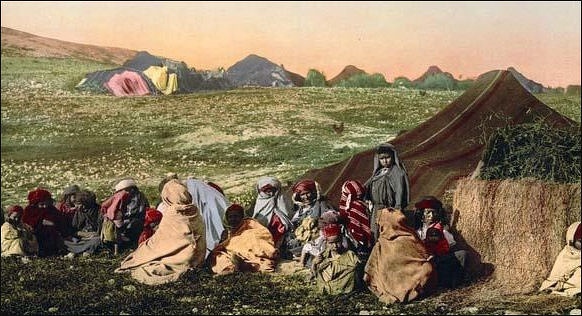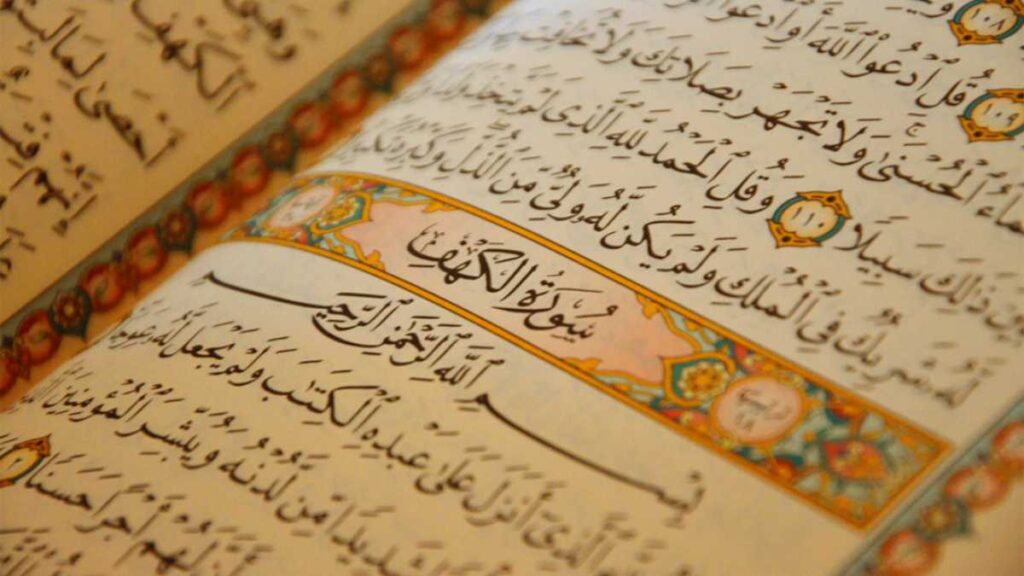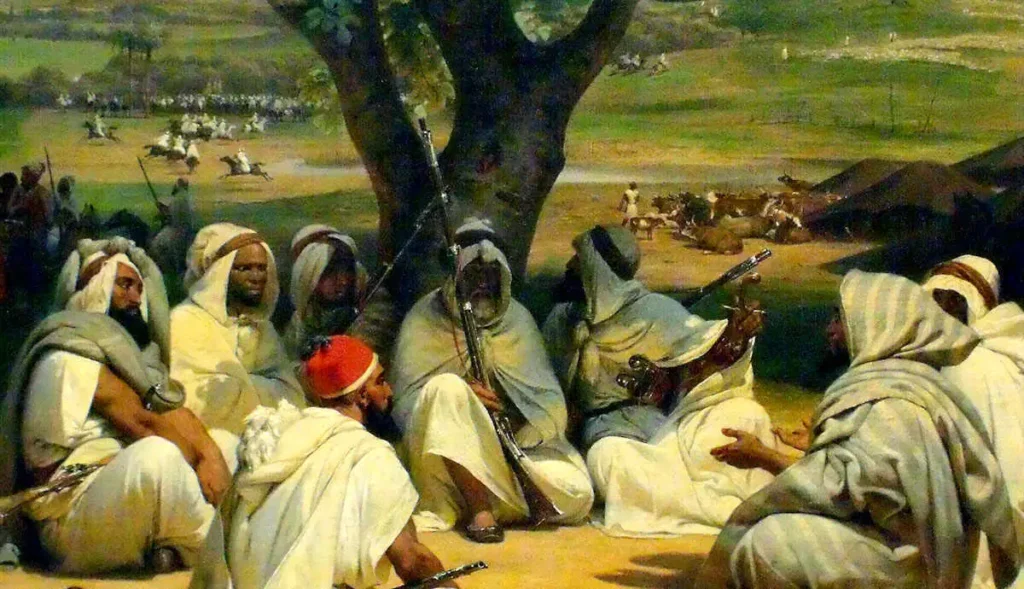Introduction
Islamic tradition teaches that Allah chose the Arab people as the first recipients of Prophet Muhammad’s ﷺ message with great wisdom and mercy. The Qur’an itself mentions that the Book was revealed in Arabic “so that you may understand,” highlighting a deliberate choice of people and language.
This article explores scriptural evidence and scholarly reflections on why Allah chose the Arabs to bear the final prophecy. It discusses the centrality of the Arabic language, the virtuous traits of the Arab community, and their broader significance in Islam. Throughout the article, we maintain a formal academic tone and cite authentic sources, including the Qur’an, Ṣaḥīḥ hadith, Tafsīr Ibn Kathīr, and Sīrah Ibn Hishām.
Historical Context: Pre-Islamic Arabia and Arab Culture
Before Islam, the Arabian Peninsula was home to various tribes with a proud and dynamic culture. Arabs of the 6th and 7th centuries CE spoke Arabic as their native tongue, celebrated for its eloquence and rich poetry. They valued honor (muru’ah), generosity (karam), and strong kinship ties. Bedouin tribes became renowned for hospitality; a tribe would share its last date rather than let a guest starve.
A hadith also praises Arab generosity: “No people gave charity more than the Arabs; if a man had nothing, others would share their wealth with him…” (inscription discussion). The tribal system fostered strong solidarity and stability. Social virtues like truthfulness, trustworthiness, and courage developed naturally within the harsh desert environment, making Arabs socially resilient.

Islamic sources affirm that these qualities created a receptive environment for the dawah (mission) of Islam. Furthermore, Arabs trace their lineage to Prophet Ibrāhīm (AS) and his son Ismā‘īl (AS), granting them a noble prophetic heritage. The Ka‘bah in Makkah, built by Ismā‘īl’s descendants, linked Arabs directly to the Abrahamic legacy. Thus, Allah honored an already distinguished people by sending Prophet Muhammad ﷺ among them.
The Qur’anic Basis for Choosing the Arabs
Qur’anic Affirmation of the Arabs’ Role
The Qur’an explicitly affirms the link between the Arabs and divine revelation. In Surah Yūsuf (12:2), Allah says:
“Indeed, We have sent it down as an Arabic Qur’an so that you may understand.”
This verse highlights that the Qur’an’s language and primary audience were Arabic-speaking, enabling immediate comprehension and clear guidance.
Similarly, Surah Ibrāhīm (14:4) states:
“We have not sent a messenger except in the language of his people to clarify [the message] for them. Then Allah leaves whoever He wills to stray and guides whoever He wills. And He is the Almighty, All-Wise.”
(Translation by Dr. Mustafa Khattab, The Clear Quran.)
By using the Arabic language, Allah ensured that Prophet Muḥammad ﷺ could deliver the message in a form accessible to his people.
Another verse emphasizes the Prophet’s universal role:
“We have sent you [O Muḥammad] only as a mercy to all the worlds” (Qur’an 21:107), implying that from an Arab messenger, Islam would eventually spread globally.

The Qur’an also calls Makkah “Umm al-Qurā (Mother of Cities)” (6:92), emphasizing that the final reminder began at the very heart of Arabia. In short, revealing the Qur’an in Arabic among Arabs was deliberate. It maximized clarity, preserved the divine message, and strengthened its authenticity.
The Arabic Language and Islam
The Arabic language itself plays a central role in Allah’s wisdom. Classical scholars explain that Arabic, with its precise root structures, was ideally suited to express divine meanings.
In Surah Ash-Shūrā (42:7), Allah commands:
“We have revealed to you [O Muḥammad] an Arabic Qur’an that you may warn the Mother of Cities [Makkah]…”
Arabic’s influence remains evident today. Islamic monuments such as Humāyūn’s Tomb in Delhi feature Arabic inscriptions like the Shahādah (“Lā ilāha illāllāh, Muḥammadun Rasūlu-llāh”) and Qur’an 55:26. These examples demonstrate how Arabic carries Islam’s message globally.
Moreover, Arabic’s classical eloquence made it uniquely capable of conveying divine speech with depth and nuance. In Surah Fussilat (41:44), Allah declares that if the Qur’an had been revealed in a foreign tongue, the Arabs would have rejected it. Thus, He chose “عَرَبِيًّا غَيْرَ ذِي عِوَجٍ” (clear Arabic) to preserve authenticity.
Prophetic tradition also underscores Arabic’s centrality. The Prophet ﷺ said:
“The best among you are those who learn the Qur’an and teach it.” (Ṣaḥīḥ Al-Bukhārī).
Mastery of Arabic was thus inseparable from faith and scholarship.
In summary, Arabic’s clarity and power were essential tools for delivering and safeguarding Islam’s final revelation.
Virtues of the Arabs in Islamic Tradition
Islamic teachings highlight the notable virtues of the Arab people. Historically, Arabs were among the first communities to receive prophecy. Five major prophets—Ismā‘īl, Hārūn, Shu‘ayb, Ilyās, and Zakariyyā (peace be upon them)—were Arabs, and the Prophet Muḥammad ﷺ emerged from the noble tribe of Quraysh.
Hadith literature commends several Arab virtues, especially tribal loyalty and generosity. For example, Arabs before Islam would give their best charity and even risk their lives for family honor. The Prophet ﷺ acknowledged this spirit when he said:
“If two parties among you go to war, the one who came out willingly is better than the one who was forced.” (Ṣaḥīḥ Muslim).
This hadith reflects the Arab love for bravery and voluntary sacrifice.
Another narration reports the Prophet ﷺ saying:
“I was sent to the Arab… He will be tested by his people most intensely.”
(Reported in Ibn Mājah.)
This highlights both the challenges and the high moral expectations placed upon them.

Scholars such as Imam Ibn Taymiyyah observed that, even before Islam, many Arabs showed an inclination toward pure monotheism (hanīfiyyah). Despite the prevalence of tribal idolatry, some Arabs maintained devotion to the original Abrahamic faith.
Poetic traditions and moral preaching among Arab tribes further show their strong spiritual sensibilities.
Thus, virtues like courage, hospitality, truthfulness, and sincerity made Arabs especially suited to uphold a grand prophetic mission. Importantly, Islam teaches that ethnic superiority is meaningless. As the Prophet ﷺ declared:
“There is no superiority of an Arab over a non-Arab except by piety and good deeds.” (Musnad Ahmad; authentic.)
Yet, the Arabs’ inherent virtues helped prepare them for the honor of receiving Allah’s final message through Prophet Muḥammad ﷺ.
Importance of the Arabs in Preserving and Spreading Islam
The importance of the Arabs extends deeply into the preservation and spread of Islam. As the Prophet’s companions (Ṣaḥābah), the Arabs were the first to memorize, record, and teach the Qur’an.
The early caliphs and scholars — who compiled the major collections of ahādīth and Islamic jurisprudence — were predominantly Arab.
Arabic, rooted in Arabia, remained the global liturgical language of Islam for centuries. Even non-Arab Muslims learned Arabic to understand the Qur’an and ḥadīth authentically.
The enduring status of Arabic in Islam (عَرَبِيًّا فُصْحًا — pure and eloquent Arabic) connects directly to Allah’s decision to begin Islam in Arabia.
Moreover, many Islamic scholars highlight that Arab tribal loyalty played a key role in Islam’s survival during its early, vulnerable period. Few Muslims had kinship protections outside their tribes; it was Arab solidarity, especially from the Ansar and Muhājirūn, that allowed the nascent Muslim ummah to endure intense opposition.
Allah willed that Islam’s early community arise from a small, cohesive group before expanding worldwide, thus making them resilient against persecution.
As one scholar remarked:
“Allah chose the Arabs for the last Prophet so that those who worship Him would find no excuse: the Book is in Arabic, making the truth unambiguous.”
Thus, the choice of the Arabs does not signify ethnic exclusivity. Rather, it ensures that all people — of any race or ethnicity — can access divine guidance clearly and directly in its original form.
Scholarly Perspectives from Tafsīr and Sīrah
Classical tafsīr (exegesis) and sīrah (biography) literature offer profound insights into this divine wisdom.
Ibn Kathīr comments that revealing the Qur’an in Arabic was a mercy, ensuring precise understanding for its first audience and, by extension, for all humanity. He and other exegetes emphasize that the Arabs’ rich vocabulary allowed them to grasp the Qur’an’s subtleties and deep meanings.
In Sīrat Ibn Hishām, it is recorded that even before the Prophet ﷺ’s birth, the Arabs were renowned for their distinguished lineage (Ansāb) and mastery of language.
Allah willed that these traits would become the vessel for His final guidance.
Ṣalafī scholars also reference a well-known ḥadīth:
“The Imam (leader) will be from the Quraysh. If not for migration (Hijrah), there would be no Muslim except that he prays behind him.”
(Ṣaḥīḥ al-Bukhārī)
This tradition highlights the strong link between Quraysh (the Prophet’s tribe) and leadership in Islam.
While classical sources do not say explicitly, “Allah chose the Arabs,” they consistently emphasize that the Arabs were providentially prepared to carry out this sacred mission.
Modern Muslim thinkers, such as Shaykh Yusuf al-Qaraḍāwī, echo these views. He noted that the purity and flexibility of Arabic made it the ideal vehicle for divine revelation.
Others argue that if Islam had originated in a non-Arab land, critics could falsely claim it was meant only for that nation.
By beginning in the arid heartlands of Arabia — often called the “ostrich country” due to its harshness — Allah eliminated any excuses of cultural exclusivity.
Thus, the scholarly consensus affirms that linguistic, cultural, and providential factors combined to make the Arabs the first bearers of Islam.
Conclusion
In summary, understanding why Allah chose the Arabs involves multiple layers of wisdom:
- The divine plan to reveal the Qur’an in Arabic.
- The moral and social qualities of the Arab people.
- The historical and cultural context of Arabia.
The Qur’an explicitly states the necessity of addressing people in their own language (Qur’an 14:4), and the prophetic tradition highlights the Arabs’ trustworthiness, courage, and linguistic heritage.
Scholars have viewed the Arabs’ selection as part of Allah’s broader plan to ensure that guidance would be clear, preserved, and universally accessible.
While the Arabs were honored as the Prophet’s people, Islam’s message transcends ethnicity and race.
As the Prophet ﷺ said:
“There is no superiority of an Arab over a non-Arab except by piety and good deeds.”
Ultimately, Muslims believe that Allah’s choice of the Arabs serves a higher purpose: making His message clear and accessible to all humanity.
As Allah states:
“This [Qur’an] is a Book in which there is no doubt, a guidance for the righteous”
(Qur’an 2:2),
offering its light to all who seek understanding — especially in its original Arabic language.
References:
- The Holy Qur’an: Surahs 12:2, 14:4, 21:107, 6:92, 41:44.
- Tafsīr Ibn Kathīr (on the language and purpose of Qur’an revelation).
- Sīrat Ibn Hishām (on Arab lineage and linguistic excellence).
- Ṣaḥīḥ al-Bukhārī (ḥadīth on leadership from Quraysh).
- Shaykh Yusuf al-Qaraḍāwī’s writings on Arabic’s sacred role.
- Islamic monuments like Humāyūn’s Tomb demonstrating Arabic’s global impact.
For further study on Pre-Islamic Arab circumstances, visit islam180.com.



